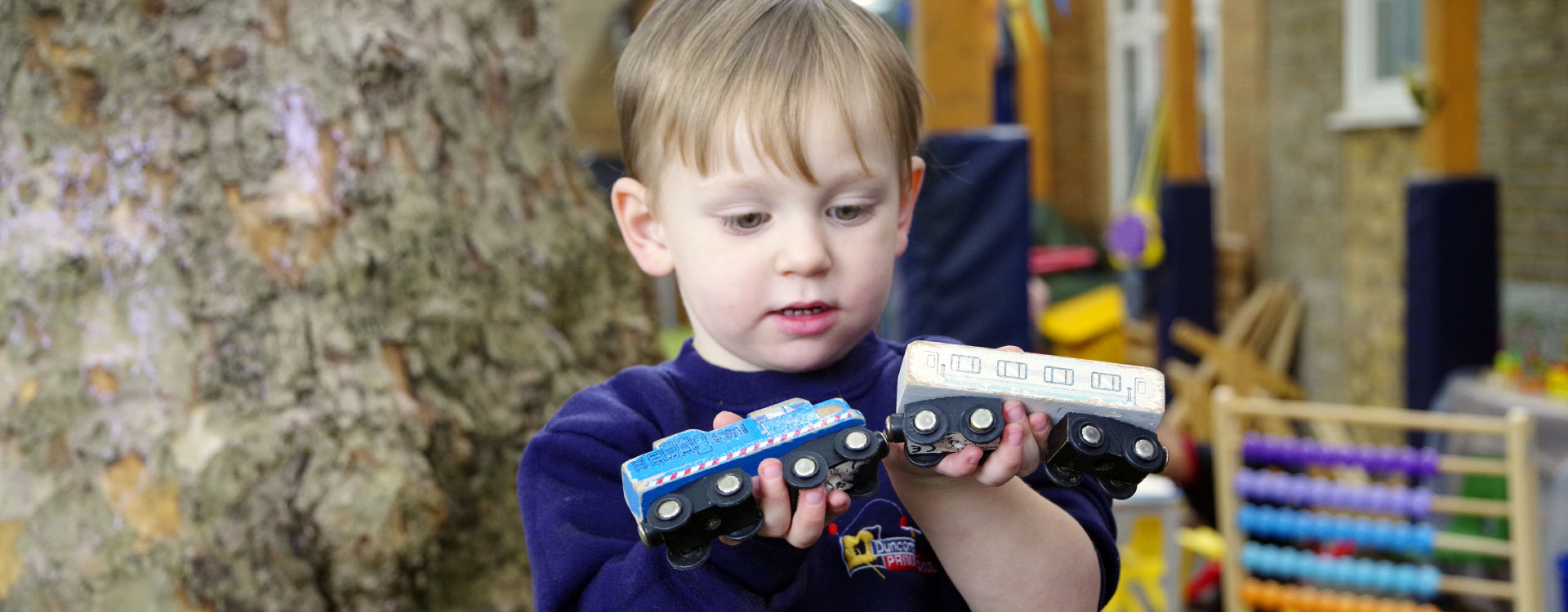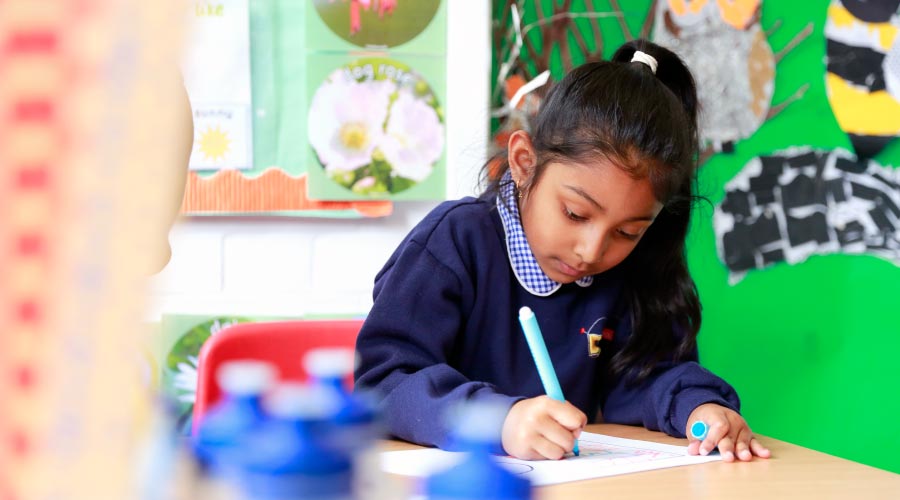
Teaching & Learning
Early Years
The Early Years at Duncombe consists of a Two-Year-Old room, Three-Year-Old provision and two Reception Classrooms.
Teaching and learning across our provision takes place, both inside the classrooms and outside in our purpose-built open-ended spaces. Our fully experienced Early Years practitioners use a range of whole class, small group and 1:1 activities under the areas of the Early Years Foundation Stage Curriculum to inspire and evoke a love of learning from our youngest children. Learning environments across each phase are set up to provide continuous provision for each area of learning which encourages the children to access resources freely and become independent learners by following their own interests as well as learning about the half termly topics that are planned for. Our focus texts taught through the Talk4Writing method allow children to become confident story tellers and be envelloped in a world of imagination
Nursery and Reception take part in whole school activities such as: the ‘Read Write Inc.’ phonics programme, music lessons and PE. The Reception curriculum also includes more formal lesson structures for maths and literacy to ensure children are ready for Year 1. Children are assessed each half term across areas of maths, literacy and phonics to accurately track their progress and to support planning for their next steps. In Nursery asessments on the prime areas are updated weekly as individual children make progress on their next steps. By the end of Reception, the children are assessed using the Early Years Foundation Stage Profile.
We strongly encourage parents to be involved in school life, from joining outings to Forest School or other trips, holding coffee mornings and inviting you in to read or enjoy family celebration days. We know that you know your child best and we aim to work collaboratively together to help your child flourish in their first years of education.
Key Stage 1
KS1 includes Years 1 and 2. The transition from the Early Years curriculum to Year 1 is a key time in a child’s school journey. We begin to prepare the children for the shift to a more structured timetable at the end of their time in Reception. We aim to further ease the transition by building opportunities for learning through exploration and play into the Year 1 timetable, particularly in the Autumn term.
All children in Year 1 and 2 attend a weekly assembly which covers local, global and moral issues. We also have singing assemblies and opportunities to celebrate achievements, in order to develop our sense of community. As the children move through KS1, they are encouraged to become increasingly independent and take more responsibility for their behaviour and learning.
Before the end of Year 1, the children will take a Phonics Screening Check which will help us to see how well they can use the phonics skills they’ve learned up to the end of Year 1 and to identify those children who may need extra phonics help. For more information on phonics, please see 'Our Curriculum' tab.
Lower Key Stage 2
The Middle Phase includes Years 3 and 4. This phase represents a crucial stage in our children’s academic and personal development. The transition from KS1 to KS2 can be challenging so we support pupils by focusing on developing their independent learning skills and fostering a nurturing environment that allows children to learn about themselves and others.
Children attend a weekly phase assembly which covers important issues that are relevant to them locally or globally, as well as moral issues. These assemblies nurture a sense of community and are a time when achievements can be celebrated.
In Year 4, pupils take the multiplication tables check (MTC). It is an online, on-screen assessment given to pupils in Year 4. It checks their ability to fluently recall times tables up to 12x12 which is essential for future success in mathematics. The Year 4 Programme of Study states: 'Pupils should be taught to recall multiplication and division facts for multiplication tables up to 12x12'. It will help us to identify pupils who have not yet mastered their times tables, so that additional support can be provided.
Through years 3 and 4 children are encouraged to take on more responsibility for their behaviour, their learning and being part of the school community. By the end of the Middle Phase, children are fully prepared for the challenges of the Upper KS2 curriculum.
Upper Key Stage 2
The Upper Phase consists of Years 5 and 6. Children in the Upper Phase begin to assume whole school responsibilities. Many Upper Phase children have the opportunity to become a Stair Monitor or a Playground Friend. In the Upper Phase children have the chance to take on responsibilities and are encouraged to take on more nurturing roles throughout the school.
The Upper Phase has weekly assemblies with their phase leader or with visiting speakers. Assemblies cover a range of topics which focus on moral issues or other national and international topical issues. We are also lucky enough to have regular, lively music assemblies!
At the end of KS2 (Year 6), all pupils take national curriculum tests in mathematics, English reading, and English grammar, punctuation and spelling. The tests are marked externally by trained markers and pupils are given a scaled score for each subject to show whether they have reached the expected standard. Pupils also receive a level in writing and science based on teacher assessment.
At the end of the Upper Phase, we are always sad to say goodbye to our pupils but we take comfort in knowing that we ensure that all of our children are prepared for life in their new secondary schools: academically, socially and emotionally. Our children know that they are always a part of the Duncombe family and are welcome to visit us at any time.


